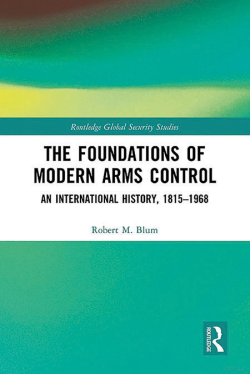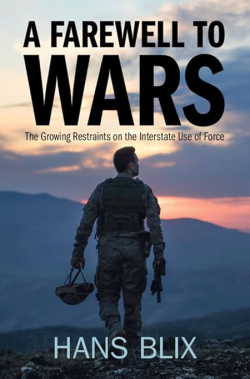January/February 2025 Books of Note
January/February 2025

The Foundations of Modern Arms Control: An International History, 1815-1968
By Robert M. Blum
Routledge
2024
The nuclear Nonproliferation Treaty (NPT) and the broader bilateral arms control relationship between the Soviet Union and the United States during the Cold War often are heralded as the crowning achievements of nuclear arms control. Yet, there exists a long history that was crucial in laying the groundwork for these successes. Author Robert M. Blum explores this history from the end of the Napoleonic wars to the negotiation of the NPT, not as an inevitable trajectory but rather as a process by which a diverse set of actors gradually shifted international attitudes over time through varying historical and relational contexts. He traces this process from the early advocacy of mechanisms for arbitration to the international community’s embrace of “total and complete disarmament” and finally to the climate of compromise that shrouded the NPT negotiation process, which remains a hallmark of conventional wisdom surrounding modern arms control agreements. Crucially, Blum highlights the contribution of civil society and peace movements led by women and people of color. Their pressure campaigns often played a key role despite the widely varying levels of openness among government officials to such groups in negotiation processes. This concise history proves a valuable resource for anyone who seeks to better understand the modern day arms control landscape.—GARRETT WELCH

A Farewell to Wars: The Growing Restraints on the Interstate Use of Force
By Hans Blix
Cambridge University Press
2023
In the wake of the unprecedented Russian full-scale invasion of Ukraine, many have concluded that the era of great-power competition has returned. Despite the heightened international context, author Hans Blix contests the traditional realist framework of writers such as Hans Morgenthau, Francis Fukuyama, and Azar Gat that views armed interstate conflict as an inevitable consequence of human nature. Instead, Blix presents a competing narrative that centers on the successes of international law and global diplomacy in limiting warfare. He leverages his decades of experience as a Swedish diplomat to contextualize evolving norms and legal frameworks, including the establishment of the UN system, the International Criminal Court, and various treaties and conventions that have been instrumental in constraining the use of force between and among states. Based on this, he argues that Russia’s war in Ukraine is a “major aberration” that constitutes a grave breach of binding international norms but that the norms themselves remain intact. This perspective carries significant implications for states, diplomats, and civil society attempting to shape an increasingly uncertain environment.—GARRETT WELCH
